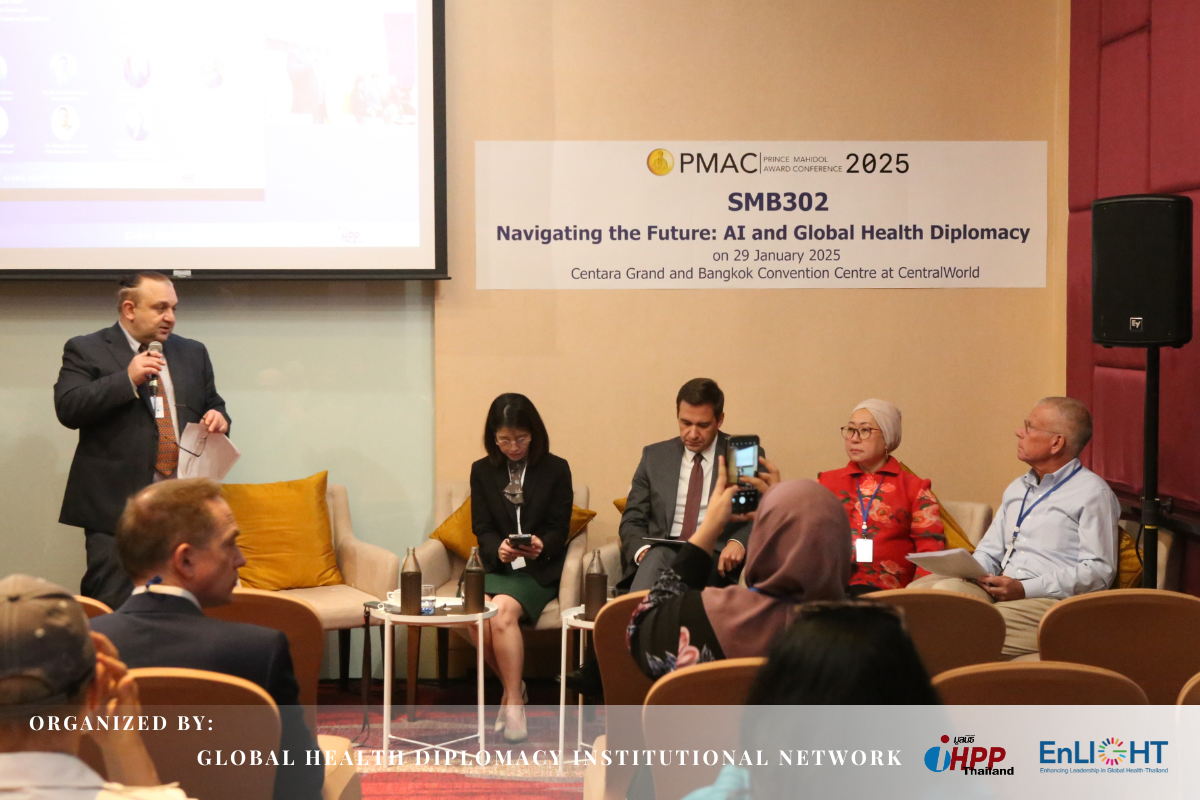Navigating the Future: AI and Global Health Diplomacy

The Global Health Diplomacy Institutional Network, in collaboration with the International Health Policy Foundation (IHPF) Thailand and WHO-Royal Thai Government Country Cooperation Strategy -Enhancing Leadership In Global Health – Thailand (CCS-EnLIGHT), organized the hybrid side meeting "Navigating the Future: AI and Global Health Diplomacy" on 29 January 2025 as part of the Prince Mahidol Award Conference 2025 (PMAC2025). More than hundred participants attended this side meeting from both onsite and online.
The side meeting was moderated by Dr. Garry Aslanyan from TDR, Switzerland. Five distinguished panelists shared their insightful experience focusing on the evolving role of artificial intelligence (AI) in global health diplomacy;
Dr. Anders Nordstrom from Karolinska Institute, Sweden emphasized health diplomacy as a political tool for advancing health agendas. He raised concerns about AI’s potential to either foster or hinder trust in diplomatic relations.
Dr. Ricardo Baptista Leite from HealthAI, Switzerland highlighted AI governance challenges, noting the dominance of big countries in AI-driven health innovations and the risk of widening global disparities.
Dr. Tim Armstrong, WHO Representative to Lao PDR, shared his view on AI applications in research, administrative functions, and language services during negotiation.
Dr. Jemilah Mahmood from Sunway University, Malaysia stressed AI’s role in planetary health diplomacy, particularly in climate negotiations and misinformation management.
Dr. Nitchanund Tantisirivit, Deputy Director Bureau of Digital Health from Ministry of public health showcased Thailand’s experience in digital health and AI integration, citing public-private partnerships as key drivers of innovation.
Dr. Brian Wong, Digital Health Consultant, summarized key messages from the discussion including the need for ethical AI implementation, adaptive diplomacy, and capacity-building to ensure equitable global health outcomes. AI's potential in diplomacy, health systems, and environmental sustainability was recognized, while the governance to mitigate risks and disparities is one of critical challenges.
Finally, Dr. Sanjay Pattanshetty from Axel Pries Institute of Public Health and Biomedical Sciences at NIMS University Rajasthan in India presented the next milestone of AI and health at the WHS Reginal Meeting which will be organized in April 2025.
See the VDO recorded here: https://youtu.be/mcW2E1jhQUM?si=vOabdqlbpw57LGfK
